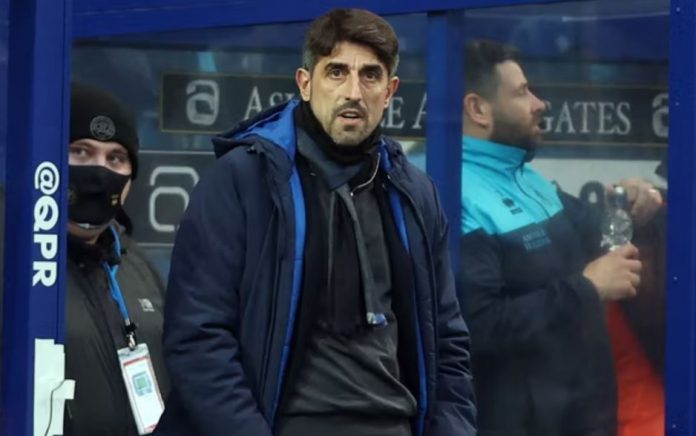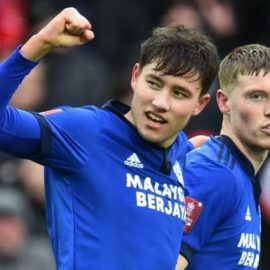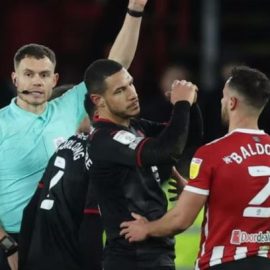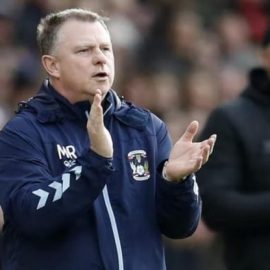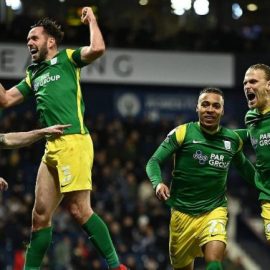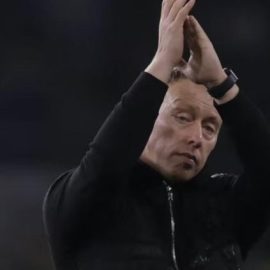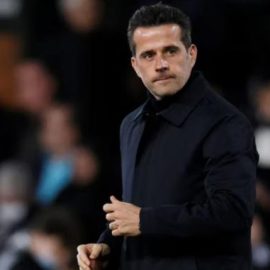It has been easy to laugh at Newcastle United in recent months, not that it makes it right of course. From Kevin Keegan’s typically sudden departure, the frankly ridiculous resurrection of Joe Kinnear’s top flight career, to the second coming of Alan Shearer, via Mike Ashley downing pints in a replica shirt, Dennis Wise somehow qualifying to be a Football Director, Chris Hughton taking charge of the team on an almost fortnightly basis, and finally, horror upon horror, relegation from the Premier League after a sixteen year stay at English football’s top table.
Even since demotion was confirmed in typically limp fashion at Villa Park back in May, the blows have continued to rain down. Ashley has, until today at least, seemed unable to offload his poisoned chalice, leaving a proud and well-supported club in a three month state of limbo. No manager, no new players added to a squad which was already dangerously sparse, and a tough trip to West Brom on the horizon. The articles on the Newcastle crisis may be predictable, sensationalized and far too regular, but the club has given the pen pushers plenty of ammunition to write about the bad side of life on Tyneside.
It wasn’t always like that you know. I may not be able to recall the days when Jackie Milburn was the King of the Tyne and the FA Cup was a regular guest at St James’, or even the days of Malcolm MacDonald and his big mouth, but I am still old enough to remember a time when Newcastle were not just covered by the media, they were adored. They were the archetypal “neutral’s favourite”.
Not for nothing did SKY- eager as ever to pull in the punters of course- christen Keegan’s original Newcastle side “The Entertainers”. During their first four seasons in the Premier League, Keegan’s men bewitched opponents, fans and neutrals alike with a cavalier brand of football that showcased attacking flair at every turn. They were third in their first season in the top flight in 1993-94, inspired by 41 goal striker Andy Cole, and sixth the following year, debilitated by his British record £7m transfer to Manchester United.
But the peak, and ultimately the nadir, of the Keegan era was undoubtedly still to come. The 1995-96 season is remembered by most for Eric Cantona, for United clawing back a twelve-point deficit to regain a title lost to Blackburn a year earlier, and for Keegan’s emotional outburst on SKY. But there was much more to that season than meets the eye, and Newcastle were the main players.
Keegan had bravely stood on the steps of St James’ Park following the sale of Cole to United in January 1995, facing up to a gathering of disillusioned supporters and doing his best to assuage them. It is something he perhaps never got enough credit for. As was his reaction in the transfer market to the loss of his main goalscorer. Make no mistake, Newcastle never missed Andy Cole.
As part of the Cole deal, Newcastle picked up promising Northern Irish winger Keith Gillespie from United, something Keegan was keen to stress the importance of. To most, it seemed the Messiah was simply attempting to save face. Like the beaten child who claims a draw in a one-sided playground scrap. Gillespie flickered intermittently in his first half year on Tyneside, but Keegan knew just the man to both replace Cole and bring the best out of “Dizzy”, whose probing crosses from wide right were proving evasive for the lesser talents of Paul Kitson up front.
Les Ferdinand was that man, a powerful, athletic centre-forward who had torn up plenty of trees during a nine-year spell at Queens Park Rangers, scoring at virtually a goal every other game. Enough to convince Keegan to splash out the rest of the Cole transfer fee for his services. It proved to be as shrewd a deal as signing Cole himself. Not especially tall (5ft 11in), Ferdinand was blessed with the most incredible spring in his heels, and was therefore one of the most formidable aerial presences in the country. Not to mention his searing pace, admirable strength, and an ever-improving anticipation of the game. From the first moment they played together, Gillespie and Ferdinand were an irresistible combination.
Keegan wasn’t finished there either, money was flush in the English game at that time- Liverpool would set a transfer record by paying £8.5m for Stan Collymore, and there were big money moves for the likes of Dennis Bergkamp, Chris Armstrong & David Platt too. At Newcastle, they set a new British transfer record for a defender was set with the £4m capture of Wimbledon right back Warren Barton (eclipsing, of all people, Phil Babb as that particular record holder), whilst Shaka Hislop- unlucky to miss out on promotion to the Premier League with Reading a season earlier- was drafted in for £1.75m to compete with popular Czech Pavel Srníček for the (atrocious) goalkeeper’s jersey.
But perhaps the glamour signing of that summer- even allowing for Ferdinand’s exciting arrival- came with the purchase of enigmatic French winger David Ginola from Paris St-Germain for £2.5m. Ginola was known round Europe as a rare talent, a month into his Newcastle career he was known around Tyneside as God.
Fusing these newboys with established stars such as Peter Beardsley, Rob Lee &, of course, Gillespie, Newcastle began the season in swashbuckling fashion. Ferdinand was on target on his debut, a 3-0 win over Coventry, and set off on a frightening run of form as the Toon steamrollered past Bolton, Everton, Sheffield Wednesday, Middlesbrough, Manchester City, QPR, Wimbledon & Chelsea in the opening months of the season, dropping just three points- a defeat to Southampton- from the first thirty available. Ginola was lighting up the league, a goal in his second appearance away to Sheffield Wednesday endeared him to the Toon Army, and his tricks and skills down the left side left many an opposing full back in need of untying at the final whistle.
They even started to look like Championship material. Tough fixtures at home to Leeds & Liverpool were negotiated with the aid of late winners, which bore the hallmark of a title-winning side, and the gap at the top began to rise as Manchester United & Liverpool suffered with consistency as they juggled European commitments- a burden Newcastle did not have to carry. The latter suffered a horrific December, the former a torrid November as Newcastle continued to pick up points and extend their lead. Ferdinand had scored 19 league goals by Christmas, with Lee, Beardsley & Ginola supporting nicely.
Even an indifferent spell up to and including the Christmas period- Newcastle won just two of five games in December, including a comprehensive 2-0 reverse at Old Trafford- seemed to matter little. Once the new year came Arsenal were disposed of at St James’ Park, and Keegan’s men racked up five straight wins to open up the now-infamous twelve point gap atop of the Premier League table.
In truth that figure is somewhat distorted, United did still possess a game in hand at that point and, with the return fixture between the sides to come in March, there was plenty of scope for closing the gap. Newcastle’s wasn’t quite the collapse it is often made out to be.
Nor was it the fault of Faustino Asprilla. The Colombian, a maverick in the truest sense of the word, arrived to snowfall on Tyneside in January 1996 for a fee of around £6.7m from Serie A club Parma. His flamboyant and individualistic style, it was said, was at odds with the attacking yet team-orientated unit Keegan had assembled. Yet when he made his debut at Middlesbrough on February 10th, it was Asprilla who turned the game, creating a much-needed equaliser for local lad Steve Watson, and lighting up the typically bleak Teeside sky with his dazzling array of skills.
Soon after, Keegan moved to dispel the myth that he was interested only in forward thinking players with the capture of David Batty from Blackburn in a £3.75m deal, but cracks had begun to appear in the Black & White machine.
For a start, Ferdinand had started to struggle. His form in the first half of the season was enough to secure him the PFA Player of the Year award from his peers, but he would score just six league goals after the turn of the year as both his own form, and the service up to him, diminished. In addition, the drive and energy of the likes of Lee, Ginola, Gillespie & Beardsley was starting to wane, their frenetic style of play- especially at home- meant that conserving energy was not considered, and that a defence that had remained relatively unstressed in the early months of the season was subsequently being exposed on a more regular basis. That defence is much-maligned- in truth the likes of Belgian Phillipe Albert, and full backs Barton & John Beresford were not bad players- but the facts bear out that Newcastle as a team were better when they were attacking, rather than defending.
Defeat to West Ham was followed by a pulsating six goal thriller at Manchester City, in which Albert was Newcastle’s saviour with two equalisers in a 3-3 draw. Suddenly their lead was down to four points, proving my earlier point about the distorted figure of a twelve-point margin. And what’s more, United were next on the fixture list, with Liverpool lurking dangerously in third place, assisted by an incredible Fowler/Collymore inspired run after Christmas.
As an eleven year old watching at home, that game at St James’ Park remains one of the iconic matches of its era. Although only an Eric Cantona volley six minutes into the second half settled matters in favour of the visitors, Newcastle went away aggrieved at having lost a game they had dominated for long periods. Batty was man-of-the-match on his home debut, Ferdinand found an immovable object in his way in Peter Schmeichel, Albert smashed a free kick off the crossbar, and United withstood everything before striking the killer blow through their French magician.
Keegan was bullish after the game, rightly pointing out that Newcastle could extend their lead to four points again by winning their game in hand, but most observers suggested that the imbalance created by Asprilla & Batty’s arrival- Beardsley was forced deeper whilst either Ginola or Gillespie were left out- coupled with the momentum Cantona’s incredibly regular strikes (the Frenchman scored winning/saving goals in seven games during the run in, earning his side nineteen points alone), meant the balance of power had shifted irretrievably towards Alex Ferguson and his side.
Newcastle briefly regained top spot with a win over West Ham, coupled with a United draw at QPR, but were soon trailing again with away defeats to Arsenal and, memorably, Liverpool. The 4-3 reverse at Anfield is held up by many as an indictment as to why Keegan’s side failed- his side led 2-1 and 3-2 in the second half before succumbing to a late Collymore winner at the Kop End- yet to the neutral there is still something permanently endearing about the way that side played. Watching back over the game recently, it was miraculous to see a team under so much pressure, playing with such positivity. Their response to Robbie Fowler’s early goal was to take the lead through well-worked goals from Ferdinand & Ginola, and when Fowler made it 2-2 in the second half it took just two minutes for Beardsley & Lee to rip the Reds apart and allow Asprilla to restore the advantage. In the days of 4-5-1s and holding out for crucial points, Newcastle’s style should be commended.
Still they clung to the briefest of hope of regaining the initiative in the title race, but defeat to Blackburn on Easter Monday all but quelled any realistic hopes, and despite picking up three consecutive 1-0 wins in nervy circumstances, their hopes were completely extinguished with a 1-1 draw in the game in hand Keegan had earlier referred to. A last day draw at home to Spurs (the only side other than Manchester United that Newcastle failed to beat this season) was rendered unimportant by United’s crushing win at Middlesbrough the same afternoon, and Newcastle finished the season four points adrift in second spot.
Ginola recently admitted that the feeling of failure around the club meant that things were never the same again, and that the arrival of Alan Shearer for a world record £15m fee that summer upset some of the squad (especially when he was handed Ferdinand’s #9 jersey), and to a certain extent it is plain to see. Keegan lasted til January the following year before resigning, Ferdinand & Ginola were sold on to Spurs six months later as his successor Kenny Dalglish looked to rebuild a squad which in truth needed little rebuilding, Gillespie would never be the same as he had been in the first half of 95/96, neither would Beardsley, neither in truth would Lee though he gave several more years stellar service to the club, and the team gradually broke up. But the memories live on. A message to all Newcastle fans, there is light at the end of the current tunnel, and that 1995 vintage were one of the finest teams ever to grace the Premier League.
Add Sportslens to your Google News Feed!
